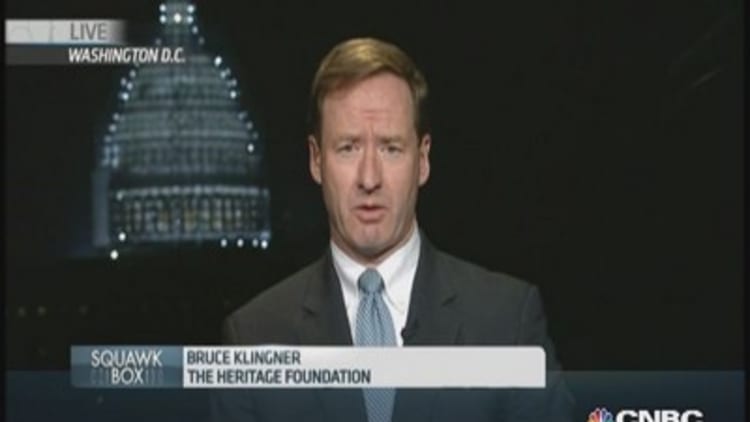Cho Hyun-ah, the Korean Air executive who lost her temper over a bag of macadamia nuts, is set to spend the next year eating prison food after she was found guilty in a Seoul court of violating aviation safety rules.
Cho, then head of in-flight services and the daughter of the airline's chairman, ordered a Korean Air flight to abandon take-off and return to the terminal at New York's John F Kennedy airport after becoming enraged with a steward for serving her nuts in a bag, rather than on a plate.
Judge Oh Seong-woo said Cho had "trampled on . . . human dignity" through her aggressive behavior towards staff during the incident in December, and had treated the airliner like a "private plane".
The incident provoked outrage and debate in South Korea, where it was seen as emblematic of the excessive power and sense of impunity that some perceive among the families that control the country's dominant chaebol business groups.
"This is an extreme case, but every day . . . there's a similar thing taking place," said Chang Sea-jin, a professor at Kaist College of Business. "The problem is the mindset of the founding families — their power is almost absolute."

Some in South Korea's business community have voiced concern that Cho has been treated harshly to appease public anger and set an example for other corporate leaders. The incident has brought a storm of negative publicity for Korean Air, which has won plaudits for its level of service despite a series of annual losses. At the World Travel Awards, Korean Air's first-class offering — overseen by Cho — has been named Asia's best for the past five years.
Cho's lawyer argued that she had not interfered with the flight plan because the aeroplane had not taken off when she intervened. But the judge dismissed the argument, pointing to international conventions that rule a flight begins when the aircraft's engine has started.
Read MoreSouth Korea economy slows sharply in fourth quarter
The judge imposed the minimum sentence of 12 months, noting that she had two young children and had expressed regret for her actions.
Concerns that company officials may feel obliged to protect the interests of controlling chaebol families will be bolstered by the eight-month prison sentence given yesterday to Yeo Woon-jin, Korean Air's head of cabin training, for interfering with the transport ministry investigation into Cho. And Kim Woon-seob, an official at the ministry, was given a six-month suspended sentence for leaking details of the investigation.
Public sentiment towards the chaebol is becoming increasingly skeptical as the groups begin to transfer control to the grandchildren of the companies' founders, said Michael Na, an equity strategist at Nomura. "People are starting to get fed up with power being handed down to the heirs, not because of ability but because of blood," he said.

Cho is one of several prominent members of chaebol families to have been jailed over the past three years. Others include the chairmen of Hanwha, CJ Group, and SK Group, the latter ranking as the third-biggest chaebol by assets.
Their imprisonment was welcomed by corporate governance activists who perceived a change from earlier years, when leaders of groups including Samsung and Hyundai were given suspended sentences for financial crimes, and then granted presidential pardons.
More from the Financial Times
Excuse me, while I misremember my career: the Brian Williams saga
ECB extends €5bn emergency loans to Greek banks
Sleep-deprived Angela Merkel at centre of Europe's storms
There was speculation late last year that President Park Geun-hye might pardon some jailed tycoons in January — a controversial new year tradition under her predecessor Lee Myung-bak — but she declined to do so.
"Because of the public opinion, the politicians are changing as well," Mr Na said.
While Ms Park has courted the support of big business for her campaign to promote innovation in South Korea, her government has imposed new restrictions on cross-shareholdings and business transactions between chaebol affiliates.
"Our law is getting stricter and stricter," said Choi Jeong-pyo, author of several books on the chaebol. "They have to change, or they will not survive."

